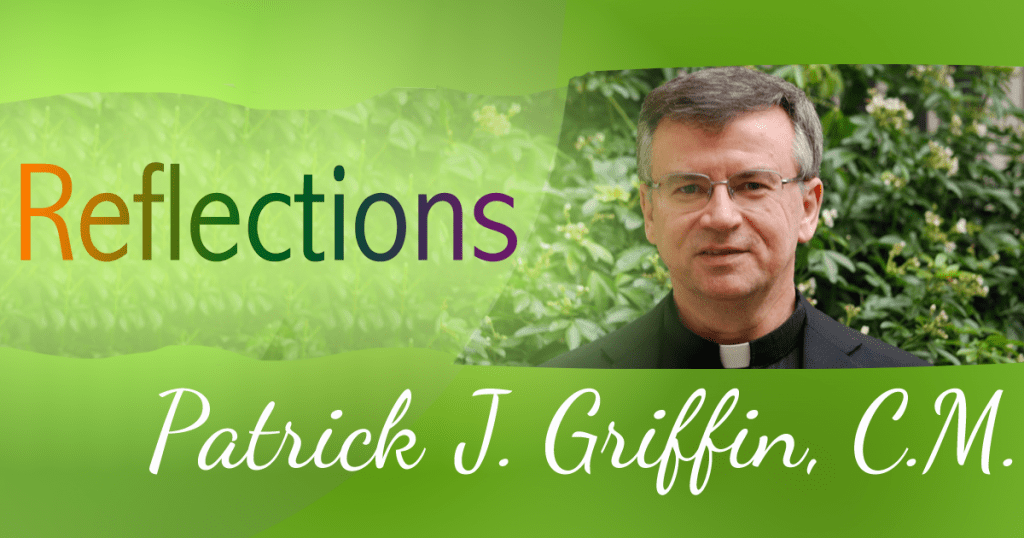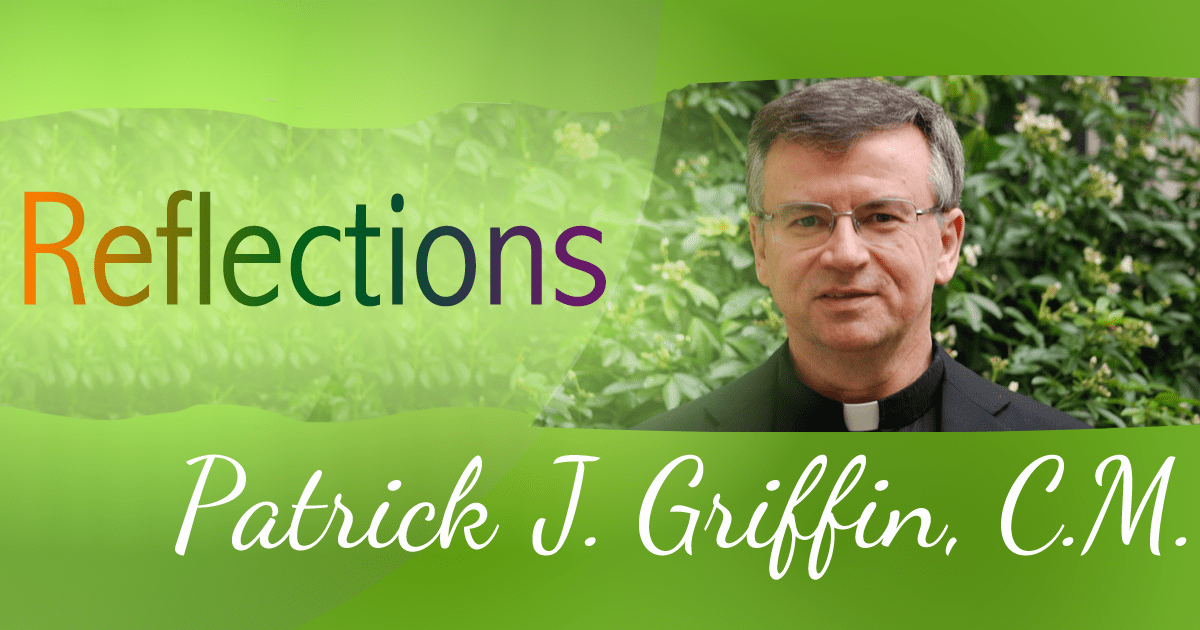A Vincentian View: The Force of the Spirit
In this Easter time, as we move towards the Solemnity of Pentecost, the Church’s liturgy continually draws our attention to the Acts of the Apostles and the growth of the Church through the action of the Paraclete. The last line of this text from this past Sunday’s readings tells us: “The disciples were filled with joy and the Holy Spirit.” What a wonderful state to be in!

As I think about the role of the Spirit in the early Church and in the contemporary Church, my mind stirs with one of those evocative images that Pope Francis offered in his Pentecost sermon last year. He describes the Holy Spirit as both a centripetal and centrifugal force. (The Holy Father repeatedly uses descriptions that I might not expect from the pens of our popes.)
The centripetal force in physics “seeks the center.” The Holy Spirit carries out that role as she brings unity, focus and peace to the individual as well as to the community. The Spirit assembles the people of God and enables a mutual understanding. This story receives forceful expression in the telling of Pentecost itself. This same Spirit helps each of us to grasp the teachings of Jesus better; she fills us with the desire to make him known. As the Spirit moves deep within us, she softens hearts, grants strength, and promotes “intimacy with God.”
One can also describe the Spirit as the centrifugal force that drives the community outward. The Acts of the Apostles illustrates this character as it describes the missionary effort of figures such as Stephen, Philip, Paul and many others. The Spirit widens our vision to include sisters and brothers who receive little attention. She drives us to every human periphery. Nothing rests outside the power or intent of God’s Holy Spirit. This divine force yields to no obstacle.
Francis’ image offers an attractive and dynamic picture. The movement of the Spirit allows for no human control or mastery. When Peter comes to the home of Cornelius, a Gentile, and he preaches in anticipation of baptizing the family, the Spirit arrives unbidden.
While Peter was still speaking these things, the holy Spirit fell upon all who were listening to the word. (Acts 10:44)
Peter has not summoned the Spirit. He continues to speak even as the Spirit descends. This presence of the power and blessing of God remains beyond human control. Jesus reveals that truth in John’s Gospel (3:8):
“The wind blows wherever it pleases. You hear its sound, but you cannot tell where it comes from or where it is going. So it is with everyone born of the Spirit.”
The gift of the Spirit comes freely and persuasively, but must be received.
In our current world, we can feel the real need for the coming of God’s Spirit. We can yearn for her summons inward to reflection and her drive outward to mission. The Paraclete draws us closer together around important values and with mutual respect. The Paraclete then sends us forth to deal with the people of our world in a supportive and Christian manner.
Vincent had deep regard for the work of the Holy Spirit. Louise did as well. We know the effect of the gift of the Spirit in her life on Pentecost in 1623 and how it gave rise to her lumière. Her writing suggests both the centripetal and centrifugal force:
“Souls that are truly poor and desirous of serving God should place their trust in the coming of the Holy Spirit within them believing that, finding no resistance in them, He will give them the disposition necessary to accomplish the holy will of God which should be their only preoccupation.… The Holy Spirit, upon entering souls that are so disposed, will certainly remove any obstacle to His divine operations by the ardor of His love. He will establish the laws of holy charity by endowing them with the strength to accomplish tasks beyond their human powers so long as they remain in a state of total detachment.” (Louise, A 25)
Fr. Patrick J. Griffin, CM
Tags:







Thank you very much!